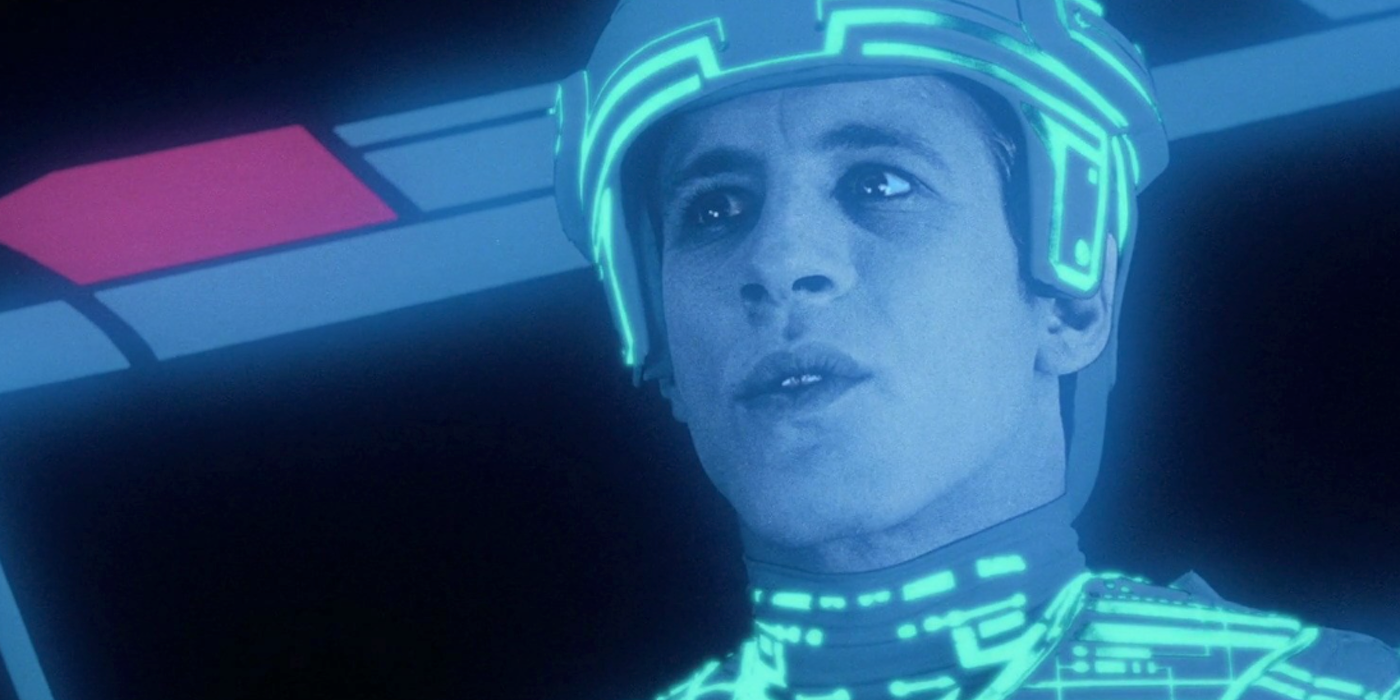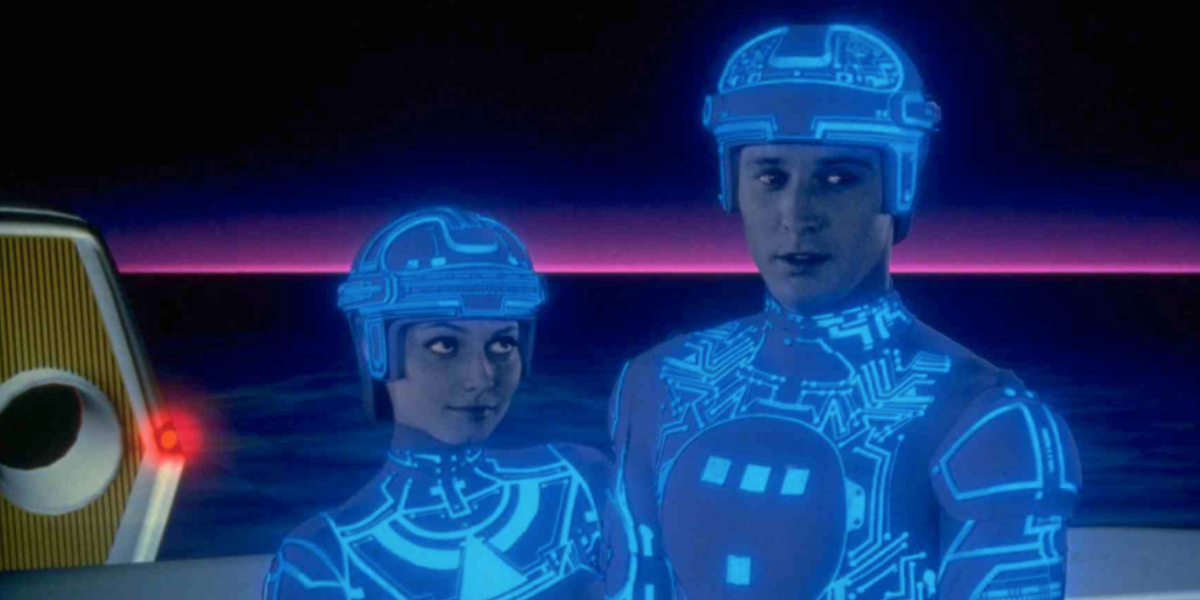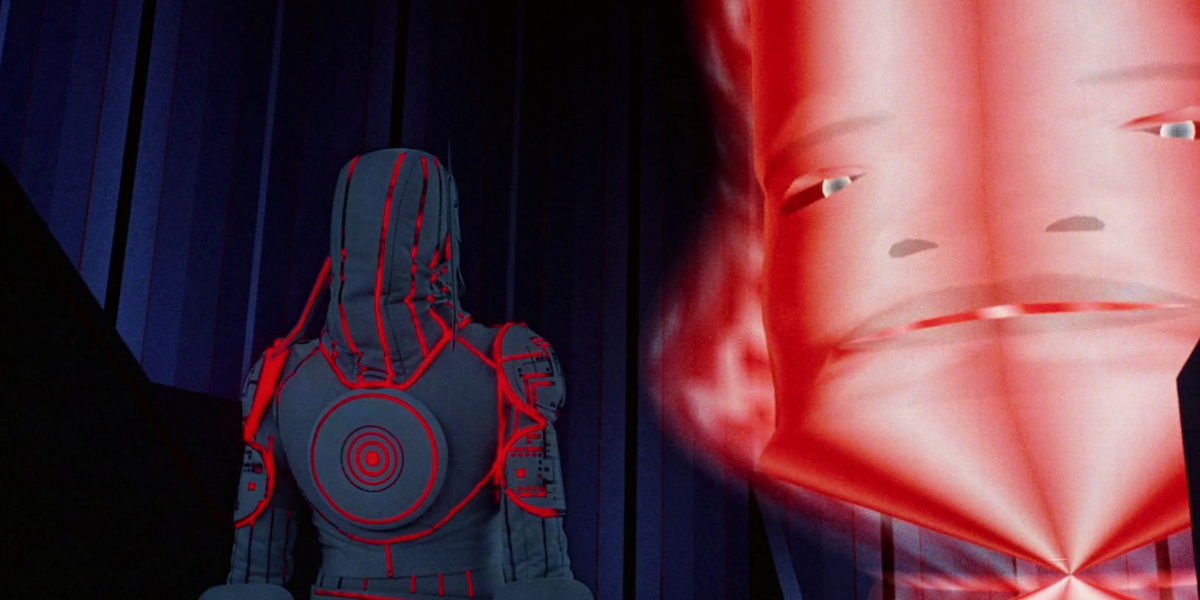Forty years after its debut, Steven Lisberger's Tron remains a standout in the world of science-fiction films. It featured one of the first major uses of computer-generated imagery in film, long before said imagery became a staple in blockbuster films. Its plot revolved around a virtual universe and its inhabitants — even predicting the development of technology including virtual reality, as well as attempts to create an online "metaverse". And its 2010 sequel Tron: Legacy kick-started the "legacyquel" trend which has permeated multiple franchises including Star Wars and Ultraman. The most underrated aspect of Tron, however, is how it addresses the concept of faith through its characters.
It's often rare for genre films to tackle the matter of faith, but when they do, it's often profound. Signs explored how faith can get people through the darkest of times, and more recently Eternals tested its characters' faith in their mission and in humanity. Tron approaches faith differently, as many of its characters put their faith in a goal or a person. Even though this type of faith isn't religious, it's shown to be just as powerful as each character goes through their own trials and tribulations with nothing but their beliefs and skills to see them through.
First, there's Tron's protagonist Kevin Flynn (Jeff Bridges). Flynn used to work for the computer gaming giant ENCOM until he was pushed out by its senior executive vice president Ed Dillinger (David Warner). In response, Flynn makes repeated attempts to hack into ENCOM's systems to prove that Dillinger had risen to his current position by stealing Flynn's games and passing them off as his own. When his friend Alan Bradley (Bruce Boxleitner) asks him why he continues to hack into ENCOM despite hitting a wall, Flynn heatedly replies, "Because, man, somewhere in one of these memories is the evidence! If I got in far enough, I could reconstruct it!" Flynn's belief that he'll find the proof he needs to gain credit for his work keeps him going; despite the odds being stacked against him, he's not willing to give up.
That belief comes in handy, as ENCOM's Master Control Program uses an experimental laser to digitize Flynn and send him into cyberspace where it reigns supreme. Programs are forced to compete in deadly games, in order to break their belief in the "Users," their term for the computer programmers that made them. Even the MCP's right-hand man Sark stirs up its wrath when he implies a User was responsible for its creation. With its desire to destroy belief in the Users and its tyrannical games, the MCP has what can only be called a god complex - though its chilling, distorted voice makes it feel more demonic.
Though the programs are punished for their faith in the Users, there's another program they put their faith in — Tron. A security program that Bradley created to protect ENCOM's servers, Tron acts as an angel to the MCP's devil. He even gains the ability to destroy the corrupt program. As befitting a messiah of sorts, Tron narrowly escapes death and is finally able to bring an end to the MCP's reign. One program even says that Tron "fights for the users," a line with layers of meaning. Tron doesn't just represent the end of the MCP, he also serves as proof that the programs' belief in their Users wasn't misplaced.
Tron: Legacy would continue the theme of belief, as an older Flynn became a godlike figure within cyberspace. With his ability to manipulate programming, he intended to create a new computer system known as the Grid - much like how God created the world in seven days. And continuing the biblical allusions, Flynn's security program Clu ended up betraying him and taking over the Grid. Tron is reprogrammed to serve as Clu's right hand man, but in a pivotal moment regains his memories and declares "I fight for the users!" - sacrificing himself to save Flynn again. Decades later, faith played a crucial role in saving the world of Tron.



